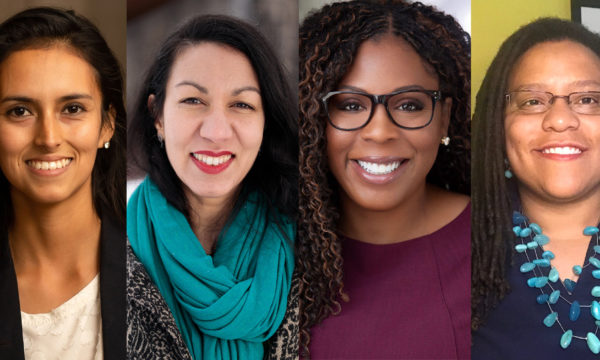
How to Best Support Your Black Colleagues Now and Always
Diversity, equity, and inclusion expert Paula Edgar shares her suggestions for providing support in the workplace.
Below, a Q&A (crowdsourced from M.M. employees) with Paula Edgar, a lawyer; diversity, equity, and inclusion expert, and partner of Inclusion Strategy Solutions LLC, helps us learn how companies and coworkers can best support their black colleagues right now (and always).
For Companies...
The most impactful strategies are assessment and strategic planning to incorporate diversity, equity, and inclusion (DEI) into their organizational DNA. Once a DEI assessment is completed—which can include looking at past DEI strategies, conducting anonymous diversity surveys and focus groups, as well as other methodologies—companies can commit to ongoing education about bias, racism, and other systemic inequalities that specifically support their organizational cultures. The organizations that do this in a strategic way and on an ongoing basis find themselves better prepared when racial injustice and other diversity-related incidents occur externally that impact their staff internally.
Black employees want to be acknowledged, supported, and valued. Companies need to recognize that at this time, Black employees are experiencing trauma on multiple levels. The protests in response to the recent killings of Black people by the police should not be viewed in a silo. This is a tipping point in America, based on years of experiencing the effects of systemic and institutionalized racism.
Black employees want companies to acknowledge that they are in pain and to provide them with as much support as they can. It should be noted that Black employees are not a homogenous group, as we all have different experiences and needs, but if your company has a diversity committee, affinity group, or an employee resource group, they can be convened to assess how to best support Black employees at this time. Managers should also take the time to individually reach out to Black employees to say, “I know this is a challenging time. Let me know what support you might need.”
Other supportive actions might be reminding Black employees of the availability of the company’s Employee Assistance Program (EAP) for mental health support, offering additional days off, and offering support with work-related duties or tasks.
I think the biggest misstep is that companies don’t acknowledge it. In the work that my partner Wendy Amengual Wark and I do with organizations, we have found that many companies don’t prioritize diversity, equity, and inclusion (DEI) and anti-racism education until there is an internal or external incident or crisis. Effective DEI work is prioritized and woven into the culture of the organization.
Yes! Companies should not think that one statement, webinar, or training is the end of their obligation. In the work that we do as diversity consultants, my partner and I recommend sustainable DEI strategies and ongoing support, which can include a myriad of things, including training, consultation on DEI and EEO issues, DEI Council formation and Support, etc, and is done collaboratively with feedback and participation from people at all levels of the organization.
Want more M Dash?
Sign up for our weekly newsletter.
Thank you!
For Coworkers...
Provide support to Black colleagues by acknowledging and empathizing with them.
Black people are experiencing trauma, grief, fear, anger, and a host of other emotions. People of all races should be educating themselves about anti-black racism and actively engaging to become anti-racists and allies. What Black people need right now are allies and advocates.
What is not helpful is asking or expecting Black people to teach you about racism. The first part of the work of becoming anti-racist is to educate yourself rather than placing that additional burden on Black people or other marginalized groups.
It can also be harmful to say “I know how you feel” or to try to equate a personal experience you may have had with death or trauma to what is being experienced right now by Black people. When you try to equate your experiences to theirs, it can make Black people feel as if they have been silenced and not heard. The best thing that you can do is to learn and listen.
Another thing that can be harmful is to be overly communicative and empathetic, because this can present a greater burden on your Black colleagues. While empathy is important, what is of the utmost importance is giving your Black colleagues the space to express what they’re feeling right now or to say nothing at all.
Reaching out to express empathy and/or allyship is encouraged; however, if you’ve never reached out before (or even if you have), you should be reaching out at this time with the well-being of the Black employee in mind, not your own. White people should not expect kudos or acknowledgment for their outreach, outrage, or advocacy.
And if you are going to reach out at this time, be authentic and genuine. Your outreach should not require an additional lift from the Black person you are reaching out to.
For more ways to help, check out our ongoing list of anti-racist reading recommendations and organizations to support.








